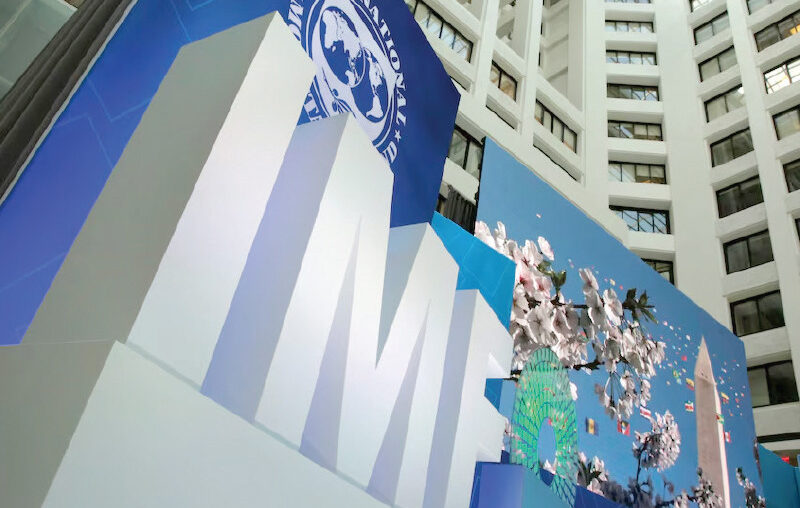ISLAMABAD:
The government on Wednesday withdrew a proposal to establish a new Export Processing Zone (EPZ) in Balochistan, complying with a condition set by the International Monetary Fund (IMF), highlighting the global lender’s growing influence over the country’s economic decision-making.
The Ministry of Industry and Production had initially pushed for the creation of the EPZ to promote copper exports from Siah Diq, Balochistan.
However, the Ministry of Finance opposed the plan during a meeting of the Economic Coordination Committee (ECC), leading to its withdrawal.
The ECC meeting was chaired by Finance Minister Senator Muhammad Aurangzeb.
In the same meeting, the ECC approved an additional Rs1 billion in funds for hosting the heads of government from the Shanghai Cooperation Organisation (SCO) in Islamabad on October 15-16.
The Ministry of Foreign Affairs informed the ECC that the event, a significant diplomatic gathering, could not be held within its regular budget of Rs1.7 billion.
The total cost of the summit is estimated at Rs1.5 billion, and the Ministry of Finance had already provided Rs500 million.
The ECC allocated Rs300 million for accommodating foreign leaders, Rs200 million for transportation, and Rs100 million for stationery.
Rs200 million was earmarked for publicity, while a major portion, Rs400 million, will be paid to an event management company.
A proposal to designate the Siah Diq copper mine area as an EPZ was also brought before the ECC.
However, opposition from the Ministry of Finance, based on an IMF stipulation under the $7 billion Extended Fund Facility (EFF), forced the withdrawal of the plan.
The Express Tribune has reported that govt accepted the IMF’s condition that Pakistan is prohibited from establishing any new special economic or export processing zones, and all existing incentives will expire by 2035, regardless of the operational status of projects.
This condition is a significant hurdle for the government, which had planned to establish an EPZ on the land of the closed Pakistan Steel Mills (PSM). Jamil Qureshi, Secretary of the Special Investment Facilitation Council (SIFC), had stated earlier on Wednesday that there were no restrictions on the creation of new EPZs, emphasising their importance in boosting exports.
However, hours after Qureshi’s statement on X, formerly Twitter, the government withdrew the summary of the EPZ.
Government sources revealed that the IMF has mandated that no new Special Economic Zones (SEZ) or EPZs can be created at either the federal or provincial levels.
Khyber-Pakhtunkhwa has refused to accept this condition, according to reports.
The ECC also reviewed a summary from the Ministry of Energy regarding a change in the gas supply priority order.
It approved a proposal to amend the current gas allocation, placing gas usage for industrial processes as a top priority, alongside domestic and commercial sectors.
Industries using captive power were relegated to a lower priority, alongside the Compressed Natural Gas (CNG) sector, to encourage a shift toward the national power grid.
This measure would benefit industries using gas in their processes, elevating them to the highest priority category, according to the Ministry of Finance.
Previously, industries were using cheaper gas to generate in-house power for consumption and selling surplus power to the government.
However, under an IMF condition, the government is working to phase out gas supplies to captive power plants by increasing gas prices and placing them at the bottom of the gas supply chain.
Additionally, the ECC exempted the contract award for the Kalkatak-Chitral road project from international competitive bidding, granting it to South Korea, which is financing the project.
According to a finance ministry handout, the ECC reviewed a summary from the Ministry of Communications concerning the “Kalkatak-Chitral 48 km Road Project – Procurement of Civil Works.”
It authorised the Ministry of Communications and the National Highway Authority to proceed with procurement under Public Procurement Rule-5, which allows the government to exempt projects from competitive bidding.
The ECC also reviewed a proposal for funds amounting to Rs238.42 million to clear arrears from wheat subsidy schemes dating back to 2015-16, as requested by the Ministry of National Food Security and Research.
Following the recommendations of the Senate Standing Committee on Finance and Revenue, the ECC directed the ministry to arrange the funds from its available budgetary resources to settle the long-pending claims.
Furthermore, the Ministry of National Food Security and Research sought a loan of Rs656 million for the Pakistan Central Cotton Committee (PCCC) to pay employee salaries and pensions.
After deliberation, the ECC recommended considering the entity for dissolution and directed that the case be submitted to the Cabinet Committee for Rightsizing of the federal government.

